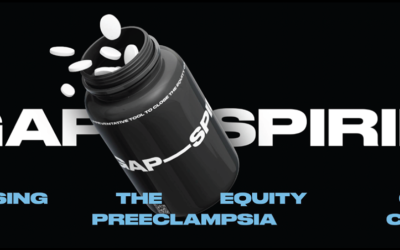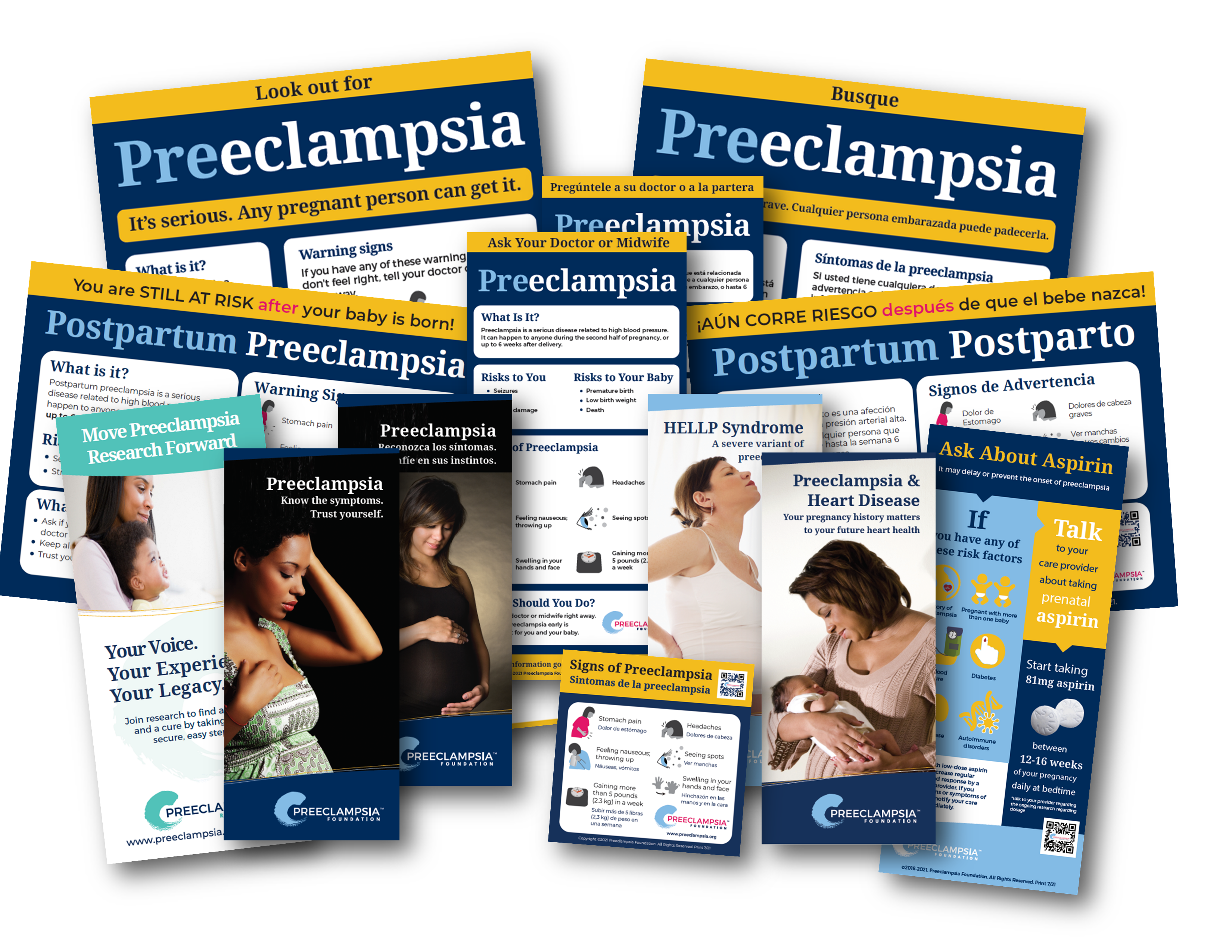
Order Cuff Kit® for Your Patients
Making self-monitored blood pressure accessible for all pregnant and postpartum moms
Last Updated on April 04, 2025
The Need
As many as one in twelve pregnancies are affected by hypertensive disorders of pregnancy like preeclampsia. In some regions of the country, 15-20% of pregnancies are affected. With the expansion of telehealth during the COVID pandemic, pregnant patients may not be attending all of their prenatal and postpartum visits in person. This means that blood pressure screening, recommended throughout pregnancy[i], proteinuria assessments, and a review of signs and symptoms may not happen for thousands of women each day. We also know that racial disparities have been exacerbated during the COVID pandemic. This telehealth-friendly environment provides an excellent opportunity to improve patient-provider communications and maternal healthcare practices now and for the long-term by giving women a simple, yet innovative tool to actively participate in their healthcare.
As a first step to address the need for self-monitored blood pressure, the Preeclampsia Foundation launched the Cuff Kit® to make self-measured blood pressure cuffs with educational materials available to all pregnant and postpartum women at risk of developing preeclampsia and other hypertensive disorders of pregnancy – especially to our most vulnerable populations.
The kit includes:
- A pregnancy-validated automatic blood pressure monitoring device[ii]
- Instructions sheet with access to online video
- Paper blood pressure tracking log
- Signs and symptoms of preeclampsia sheet
- Signs and symptoms of postpartum preeclampsia education sheet
- Signs and symptoms magnet
- “Still at Risk” rubber bracelet
- Patient feedback link
Already have cuffs but need the educational materials? Introducing the "Check Know Share" Self-Measured Blood Pressure Education Kit
Does your facility already have blood pressure cuffs, but not the patient education materials on preeclampsia signs and symptoms or how to take their own blood pressure? We are now offering a second great option for your pregnancy and postpartum self-measured blood pressure program through our "Check Know Share" Self-Measured Blood Pressure Education Kit! Great for programs that are already accessing blood pressure cuffs through other means, this wrap-around kit gives you everything your patient needs to know how to accurately take their blood pressure:
- Instructions sheet with access to online training video and patient feedback link
- Paper blood pressure tracking log
- Signs and symptoms of preeclampsia sheet
- Signs and symptoms of postpartum preeclampsia education sheet
- Signs and symptoms magnet
- “Still at Risk” postpartum rubber alert bracelet
Purchase the SMBP Education Kits
Interested in providing the Cuff Kit® to your patients?
Participating providers must be able to:
- Quickly and readily communicate with participating patients, utilizing telehealth as needed;
- Prioritize distribution to highest risk, especially vulnerable women with lower ability to procure their own BP cuff (i.e., Individual risk factors include chronic hypertension, history of preeclampsia, obesity, age (35+), autoimmune disorders; as well as population-level risk factors such as black, Native American, or rural women);
- Commit to provide quarterly feedback to help us assess the impact of this initiative. Please see our questions here, so you can implement systems to collect this data.
The Cuff Kit® Project: Our Strategic Plan
The ability for all women to access healthcare during and after pregnancy has been further challenged by COVID-19, but the application of home monitoring and telehealth as an important option has garnered considerable attention. (Check out one woman's story of how a self-measured blood pressure cuff helped her detect her own preeclampisa as featured on CNN Health.) Although the Cuff Kit is an important and urgent first step, our view of this solution extends beyond the emergency response to COVID-19. There is immediate need to fund projects related to this entire scope of work:
- Purchase and provide additional Cuff Kits®, coupled with telehealth options, to support high-risk, low resource women across the US.
- Collect data, analyze and publish results of self-monitored and remote blood pressure measurement programs in pregnancy and the postpartum period. Outcome measurements should include maternal and neonatal mortality and morbidity, healthcare costs, impact on racial disparities.[iii]
- Technical evaluation and validation of current home-monitoring devices/services for use in pregnancy, with secondary validation for preeclamptic pregnancies.[iv]
- Assess policies and drive regulatory and clinical changes, as needed, to add self-monitored and remote blood pressure measurements to obstetrics standards of care.
- Advocacy efforts with public and private insurers to universally reimburse for home-monitored blood pressure measurement for all pregnant and postpartum women.
[i] JAMA. 2017;317(16):1661-1667. doi:10.1001/jama.2017.3439
[ii] Cuff Kits utilize the Andon iHealth Track blood pressure monitor device, which has been independently validated for home blood pressure monitoring in pregnant populations by Stride BP, a joint initiative with the European Society of Hypertension, International Society of Hypertension, and the World Hypertension League.
[iii] Oral presentation at the 39th Annual Pregnancy Meeting of the Society for Maternal-Fetal Medicine, Las Vegas, NV, Feb 11-16, 2019. https://doi.org/10.1016/j.ajog.2019.05.011
[iv] Bello N. Hypertension. 2018;71:326-335. DOI: 10.1161/HYPERTENSIONAHA.117.10295
Related Articles

Congratulations on receiving your brand new Cuff Kit®! Want to learn more about how to use your iHealth Track device? Here are some handy videos and links to get you started. Unpacking and using...

Nurses play a vital role in detecting preeclampsia and caring for patient before, during, and beyond pregnancy.

A key component needed in the fight against preeclampsia is the development of tests for simple, rapid, and accurate diagnosis and prediction through the development and adoption of biomarkers.

Every woman should be able to check her own blood pressure at home.

Order our Ask About Aspirin Rack Card. Aspirin can prevent the formation of blood clots. This can make aspirin useful in treating or preventing some conditions like heart attacks and st...

For more on the Preeclampsia Foundation's work to amplify all research related to biomarkers for improved prediction and diagnostic tools, please visit https://preeclampsia.org/biomarkers. INDIANAPOL...

GAP—SPIRIN campaign gets low-dose aspirin to those most at risk to help close the maternal health gap in preeclampsia ________ NEW YORK, January 23, 2025/PRNewswire/ – In recognition of...
1732072344.png)
While the Preeclampsia Foundation has been championing patient advocacy and representation for all families affected by hypertension in pregnancy throughout our 25 year history, we recognized the uniq...

Washington, DC – April 11, 2024 – On April 10, one day before the start of Black Maternal Health Week, the Preeclampsia Foundation in partnership with Thermo Fisher Diagnostics held a Hill...

Recently, I came across a social media post calling attention to the global maternal health crisis from a Black woman’s perspective. Someone responded to the post asking, “What’s rac...


